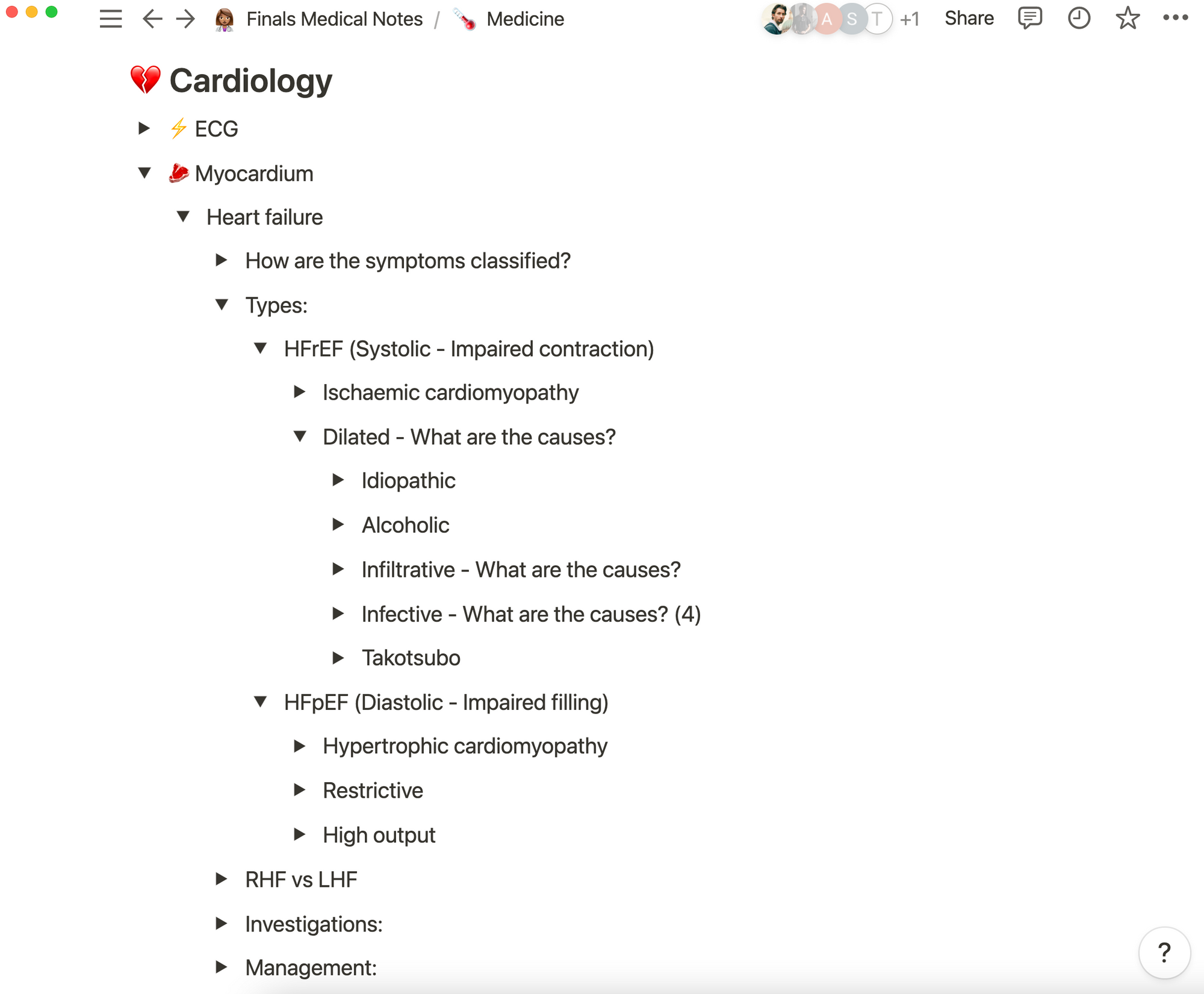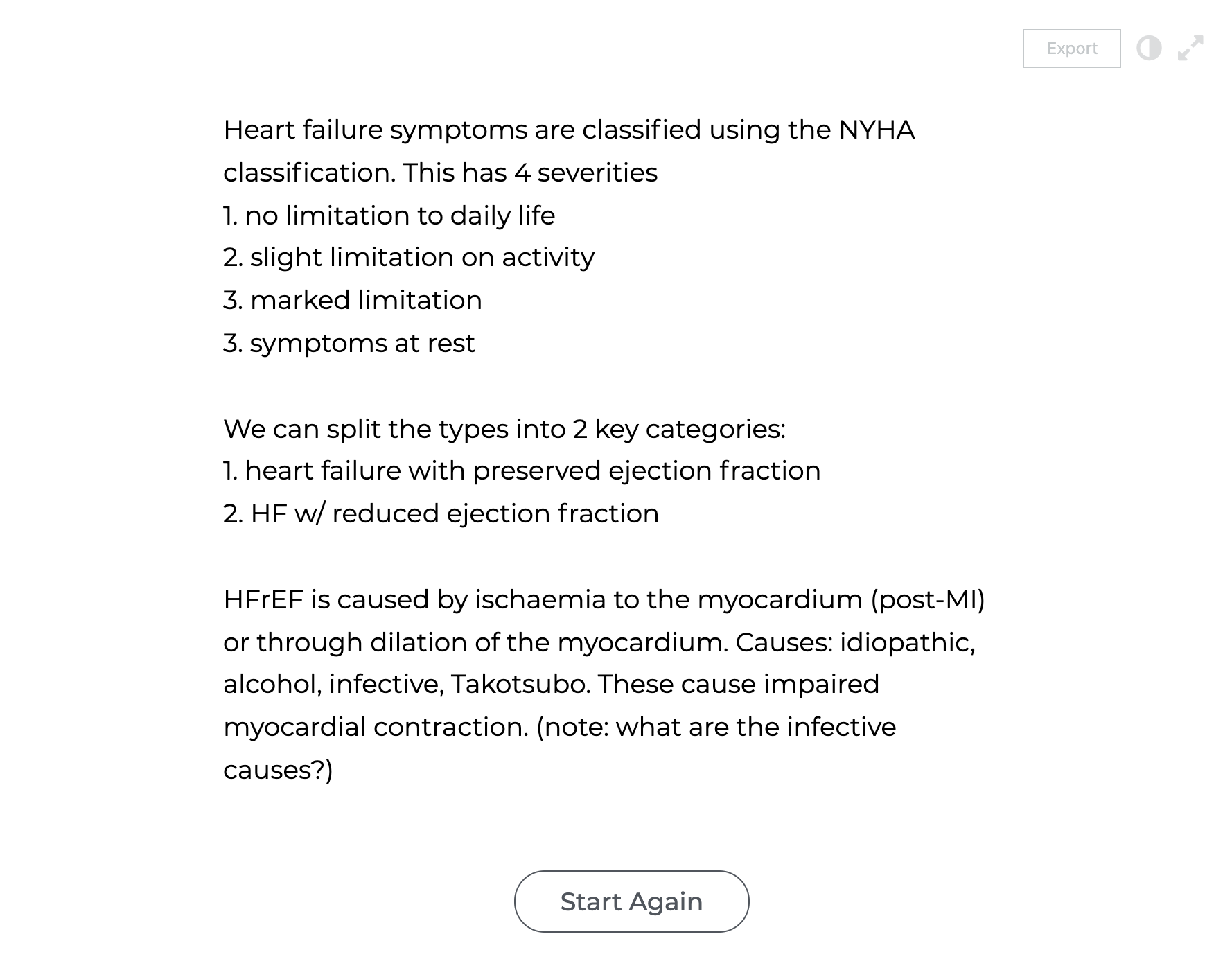I used to think the key aspect of learning was input. I'd do this through writing copious notes, drawing beautiful spider diagrams and re-reading this content until I understood it. 5 years of University has changed my perspective. I've realised that the key to learning is building paths back to the information. I'd focused on refining input mechanisms, when the key to learning is streamlining output.
Why Use Active Recall
Passively absorbing information isn't learning. It feels productive, you've read 25 pages of the textbook and now you completely understand cardiology. But wait. You don't. If you try to explain those 25 pages, you'll probably only have taken about 3 key points away. This is why you need to be actively recalling the information while you're reading.
A study from 2011 found that testing yourself on a topic once is more effective than re-reading a chapter of a textbook four times. This is supported by a study from 2010 that states the following:
"Repeated testing produced superior retention and transfer on the final test relative to repeated studying."
During my time at University, I've tried a wide array of different learning techniques: notes, highlighting, spider diagrams. You name it, I've tried it. Most of them were a waste of time. Writing questions for myself has been my secret saviour. I started by writing questions in Notion, and talked about it in this YouTube video. However, I still found that this technique wasted a lot of time. My focus drifted from learning the content to making my notes look pretty.

Recently I've come across a new gem. It's shifting my focus from format to content, if I spend too long worrying about it looking perfect, everything gets deleted!
The Most Dangerous Writing App
The concept of The Most Dangerous Writing App is very simple. Write for 5 minutes, that's all they ask. But if you stop writing for 5 seconds, everything is deleted. All of your work, gone.
It depends on the topic, but generally, writing about a topic for 5 minutes is hard. Once I hit the 3 minute mark, I begin to struggle. However, learning isn't supposed to be an easy experience. In the gym, we push for progressive overload—'put on an extra 10kg, it can't be that hard'. This principle applies to learning, too! In those final 2 minutes, pushing through the progressive overload, I often retrieve information that I didn't know I knew.
I've found this incredibly useful when going through a new topic. Going back to cardiology, my notes look more like this now:

There's no need to keep these notes to refer back to. Now if you need it, just take out a pen & paper, or more likely mouse and keyboard, and write.
The Bottom Line
Tailoring your revision to find what works best for you is the most important thing. The Most Dangerous Writing App works well for me; Notion, Evernote, or OneNote may work better for you. Just remember: test yourself. Testing keeps our focus on streamlining the output process, rather than wasting time on aesthetic inputs.
